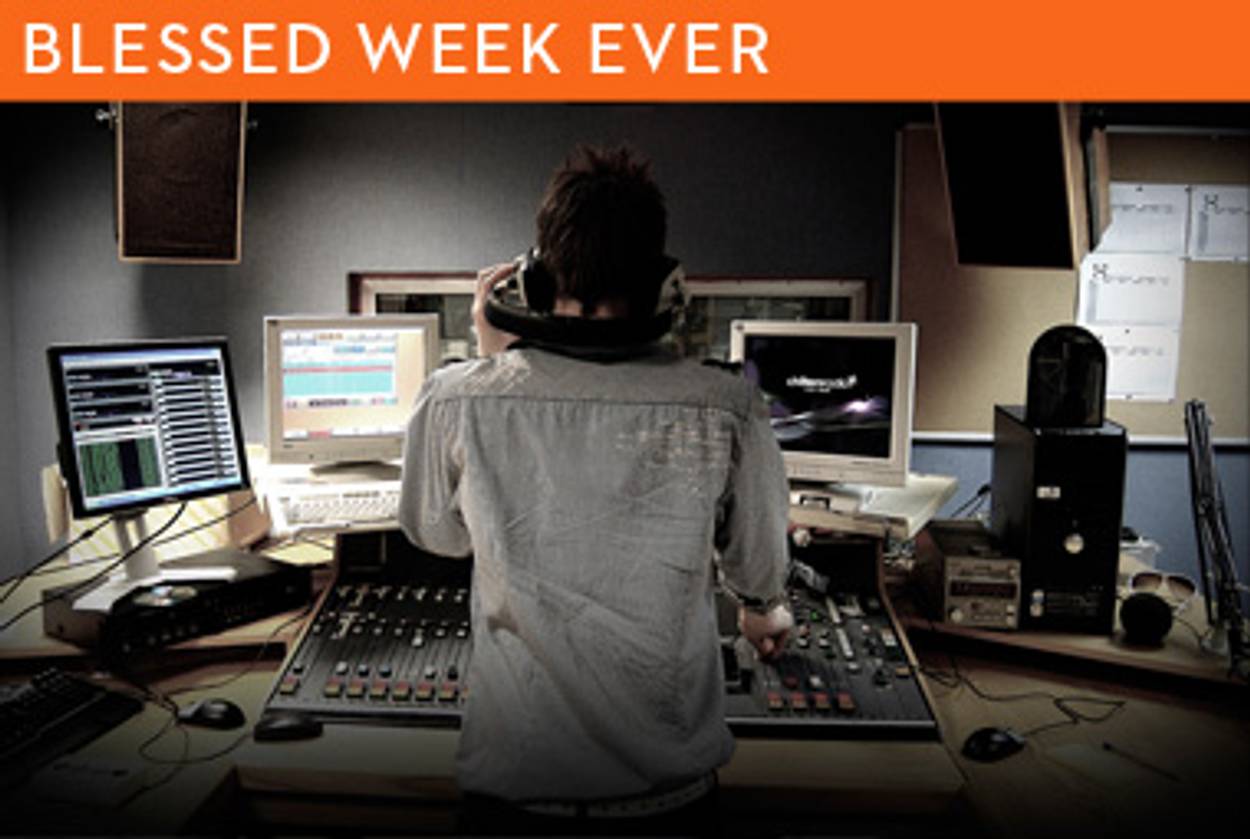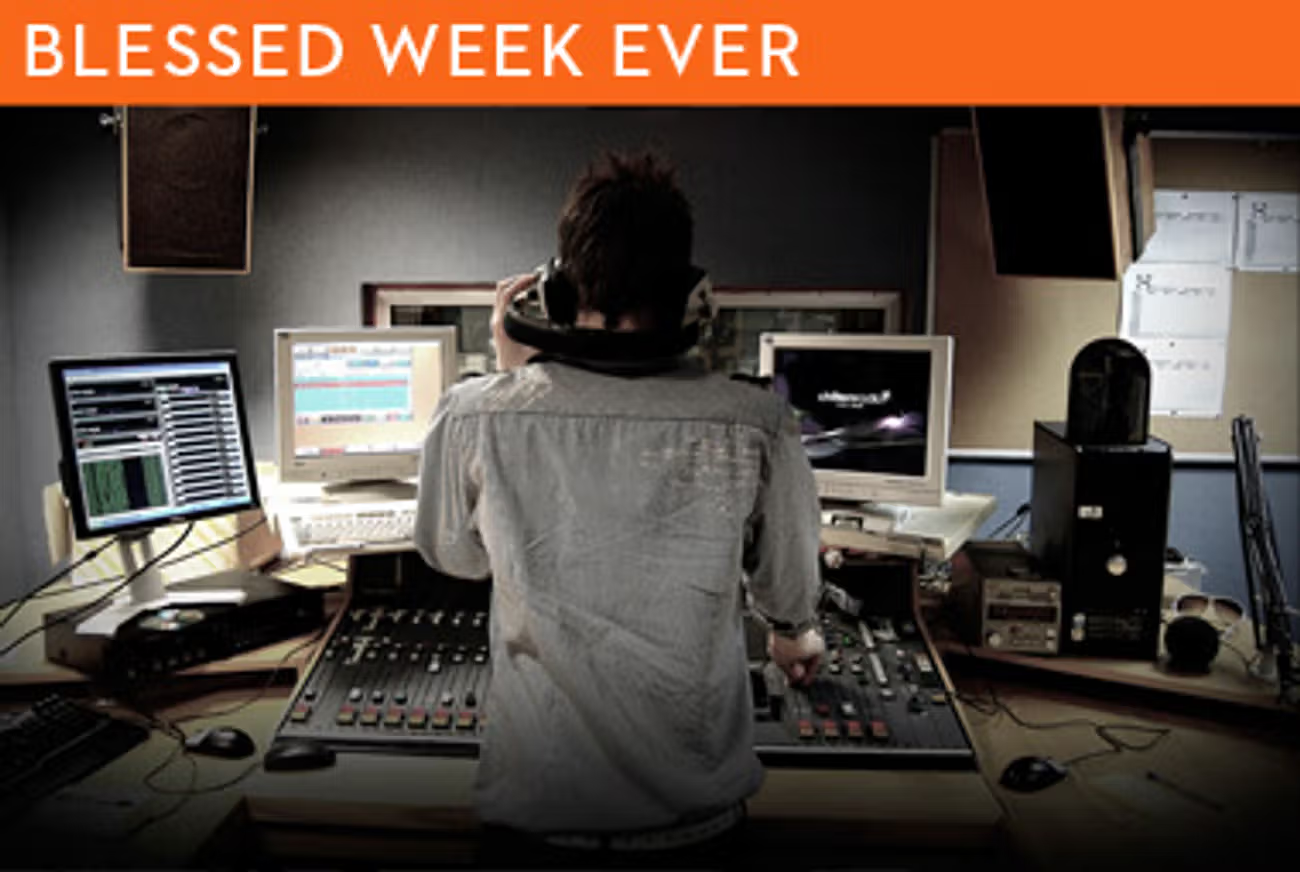Radio Daze
This week’s parasha introduces a medium for distinguishing truth from falsehood. On the radio, where actors are hired to read scripts and pretend to be real people, things aren’t so simple.




Last year, a young man called in to a radio station with a problem. He’d recently attended a bachelor party, he said, and a friend of the groom-to-be, clueless of the unwritten etiquette of maledom, brought his girlfriend along, derailing what was supposed to be a weekend of gambling, girls, and general debauchery. The caller told his story with passion and verve, and then asked the station’s listeners for their advice on how to treat his clueless pal.
Or at least he would have, had this been a real conversation. The young man—who asked to remain nameless in order to protect his chances for future employment—was an actor, and the staged call an audition. A short while later, he received the following email: “Thank you for auditioning for Premiere On Call,” it said. “Your audition was great! We’d like to invite you to join our official roster of ‘ready-to-work’ actors.” The job, the email indicated, paid $40 an hour, with one hour guaranteed per day.
But what exactly was the work? The question popped up during the audition and was explained, the actor said, clearly and simply: If he passed the audition, he would be invited periodically to call in to various talk shows and recite various scenarios that made for interesting radio. He would never be identified as an actor, and his scenarios would never be identified as fabricated—which they always were.
“I was surprised that it seemed so open,” the actor told me in an interview. “There was really no pretense of covering it up.”
Curious, the actor did some snooping and learned that Premiere On Call was a service offered by Premiere Radio Networks, the largest syndication company in the United States and a subsidiary of Clear Channel Communications, the entertainment and advertising giant. Premiere syndicates some of the more sterling names in radio, including Rush Limbaugh, Glenn Beck, and Sean Hannity. But a great radio show depends as much on great callers as it does on great hosts: Enter Premiere On Call.
“Premiere On Call is our new custom caller service,” read the service’s website, which disappeared as this story was being reported (for a cached version of the site click here). “We supply voice talent to take/make your on-air calls, improvise your scenes or deliver your scripts. Using our simple online booking tool, specify the kind of voice you need, and we’ll get your the right person fast. Unless you request it, you won’t hear that same voice again for at least two months, ensuring the authenticity of your programming for avid listeners.”
The actors hired by Premiere to provide the aforementioned voice talents sign confidentiality agreements and so would not go on the record. But their accounts leave little room for doubt. All of the actors I questioned reported receiving scripts, calling in to real shows, pretending to be real people. Frequently, one actor said, the calls were live, sometimes recorded in advance, but never presented on-air as anything but real.
Michael Harrison, the editor of Talkers Magazine,the talk-radio world’s leading trade publication, said he knew nothing of this particular service but was not altogether surprised to hear that it was in place. There was, he said, a tradition of “creating fake phone calls for the sake of entertainment on some of the funny shows, shock jocks shows, the kind of shows you hear on FM music stations in the morning, they would regularly have scenarios, crazy scenarios of people calling up and doing pranks.”
Rachel Nelson, a Premiere Radio Networks spokesperson, defended the Premiere on Call service and said that responsibility for how it is employed falls ultimately to those who use it.
“Premiere provides a wide variety of audio services for radio stations across the country, one of which is connecting local stations in major markets with great voice talent to supplement their programming needs,” Nelson wrote in an email. “Voice actors know this service as Premiere On Call. Premiere, like many other content providers, facilitates casting—while character and script development, and how the talent’s contribution is integrated into programs, are handled by the varied stations.”
***
In a strange way, this week’s Torah portion anticipates the state of affairs brought about by Premiere On Call. The parasha discusses a priestly vestment known as the hoshen. It’s a breastplate worn by the high priest, fitted with 12 jewels and looking a bit like a telephone keypad. And, like a telephone, it was an instrument of communication: The hoshen housed the urim and thummim, mysterious holy objects that, most scholars believe, were used for divination. In particularly fraught times, when truth and lies had to be sorted apart, the hoshen was called into service. It was, in a way, one of our earliest pieces of technology, a man-made object used to communicate, in this case, with the divine.
We’ve come a long way. Far from harbingers of truth, our media are now increasingly used to shake the foundations of the real. We know this to be the case with television, where the stars of reality programming are frequently found to follow the blueprints of writers and producers. And we know it to be the case online, where identity has become a playground and masquerading the norm. But radio seemed different. We listen to radio because the voice, we think, doesn’t lie. The voice is immediate and intimate and present. We attach ourselves to radio personalities with an intensity we’d never dream to extend to, say, television hosts—just look at the fierce and unparalleled devotion to Howard Stern—and this is because we feel as if we know them and trust them.
It is time to question this notion as well. The next caller you hear, the next personal story that makes you sniffle or shout with rage, may be the doing of someone at some faceless casting agency, hiring actors and writing scripts designed to titillate. The point is, without something like the hoshen, an object capable of channeling the celestial spirit and telling truth from lie, we’ll never know.
Liel Leibovitz is a senior writer for Tablet Magazine and a host of the Unorthodox podcast.
Liel Leibovitz is editor-at-large for Tablet Magazine and a host of its weekly culture podcast Unorthodox and daily Talmud podcast Take One. He is the editor of Zionism: The Tablet Guide.